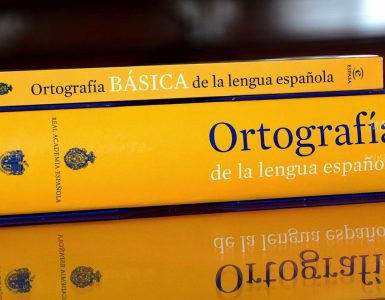There are so many ways of saying How are you in Spanish that we could not name them all. This is because new urban slang is constantly emerging with different ways to greet people. However, I will show the most common ways, both formal and informal, to say How Are You to the people you meet in Spanish.
I’ve included some literal English translations to guide you through.
¿Cómo estás? / ¿Cómo están? – How are you?
The easiest and most explicit of all. It is the literal translation of how are you and if we are referring to someone as usted, we eliminate the “s” from the verb estar in Spanish, in this way:
¿ + Relative adverb + Verb to be (Tacit subject) + ?
| Spanish | English |
|---|---|
| ¿Cómo estás (tú)? / ¿Cómo está (usted)? | How are you? |
¿Qué tal? – What’s up?
It is a little more informal than the previous one, so it is used daily in family and friendly environments. It is almost always accompanied by a greeting, in this form:
Greeting + ¿ + Relative adverb + Demonstrative pronoun + ?
| Spanish | English |
|---|---|
| Hola, ¿qué tal? | Hello, how are you? |
¿Cómo va todo? – How goes everything?
This is a more polite way of asking how our friends and colleagues are doing. We can also add at the end the nickname or name of the person we are referring to, like this:
¿ + Relative adverb + Verb to go + Indefinite adjective + Subject (optional) + ?
| Spanish | English |
|---|---|
| ¿Cómo va todo, amigo? | How’s everything, buddy? |
¿Cómo te va? – How does it go for you?
They are similar to the previous one, and if we refer to a person as usted, instead of the reflexive pronoun te we would use le, like this:
¿ + Relative adverb + Reflexive pronoun + (Verb to have) + Verb to go + ?
| Spanish | English |
|---|---|
| ¿Cómo te va? / ¿Cómo te ha ido? | How’s it going for you? |
| ¿Cómo le va? / ¿Cómo le ha ido? | How have things been for you? |
¿Cómo van las cosas? – How do things go?
If we want to ask how life is going, in a generalized way, of the person to whom we refer, this expression is commonly used.
¿ + Relative adverb + Verb to go + Pronoun + Things (Generalization) + ?
| Spanish | English |
|---|---|
| ¿Cómo van las cosas? | How are things going? |
¿Qué hay (de nuevo)? – What’s new?
It is not a literal translation like the previous one, but it is a more informal and colloquial way of asking how’s it going for you? or how are things going?
¿ + Relative adverb + Verb to have + ?
¿Qué hay?
We can also complement it with a preposition before nuevo, indicating that we are asking for some novelty at the moment of greeting, like this:
¿ + Relative adverb + Verb to have + Preposition + “New” (of novelty) + ?
| Spanish | English |
|---|---|
| ¿Qué hay de nuevo? | What’s new? |
¿Qué has hecho? – What have you done?
It is a way of asking how are you and what have you been doing in your life lately. Very used when we have a long time without seeing the person we are greeting.
¿ + Relative adverb + Auxiliary of the verb to have + Verb to do (past) + ?
| Spanish | English |
|---|---|
| ¿Qué has hecho? | What have you been up to? |
¿Y vos qué? – How about you?
This phrase is used in some Latin American countries such as Argentina, Colombia, Costa Rica, and some others. It is used colloquially, because it is an extension that not only denotes greeting but can also be used to answer how are you.
¿ + Conjunction + Pronoun in 2nd person of Spanish ‘voseo’ + Relative adverb + ?
| Spanish | English |
|---|---|
| ¿Y vos qué? | What about you? |
¿Cómo andas? / ¿Cómo andás? / ¿Cómo vas?
Its literal translation means “How do you walk?” or “How do you go?”. Although it doesn’t make sense, all native Spanish speakers will interpret either of these phrases as ¿cómo estás? In the case of andás with an accent, it is used when referring to the person as “vos” while andas without an accent is used when referring to a person as tú.
¿ + Relative adverb + Verb to walk or to go + ?
| Spanish | English |
|---|---|
| ¿Cómo andas? | How do you walk? |
| ¿Cómo vas? | How do you go? |
¿Qué cuenta pues? – What do you count then?
In some Latin American Andean countries, especially in Colombia and Venezuela, this phrase is used, whenever we colloquially address the second person as usted, in this way:
¿ + Relative adverb + Verb to count + Conjunction + ?
| Spanish | English |
|---|---|
| ¿Qué cuenta pues? | How’s it going? |
¿Qué se dice? – What do you say?
If we are in Colombia, especially the city of Medellin, it is normal to hear this expression. It is interpreted as how are you or how are you doing in this Latin American country.
¿ + Relative adverb + Reflexive pronoun + Verb to say + ?
| Spanish | English |
|---|---|
| ¿Qué se dice? | How are you doing? |
¿Qué más? / ¿Qué más pues? – What else?
It is the literal translation of what ‘s up in English. Accompanied by the conjunction pues, it is colloquially used in some countries such as Colombia, Venezuela and Ecuador.
¿ + Relative adverb + Adverb of quantity “plus” + Conjunction “pues” (optional) + ?
| Spanish | English |
|---|---|
| ¿Qué más pues? | What’s up? |
¡Quiubo! / ¡Quiubole! – What’s up?
These are the shortened forms of ¿qué hubo? and the more spontaneous and colloquial variants of what’s up, used mainly in Colombia and Mexico.
¿Bien o no? / Bien o qué? – Good or Not?
This is an expression used mainly in Medellín – Colombia, other areas of the country and even some bordering countries interpret it directly as are you ok or are you bad?
¿ + Adverb of mood “well” + Conjunction + Negation or relative adverb “what” + ?
| Spanish | English |
|---|---|
| ¿Bien o no? / ¿Bien o qué? | Are you doing good or what? |
¿Todo bien? – All good?
Like the previous one, it intends to directly ask the general state or mood of the person to whom we are referring. The only difference is that this expression is much more widely used than are you doing good or not, being used in Latin America and Spain.
¿ + Indefinite adjective + Adverb of mood “well” + ?
| Spanish | English |
|---|---|
| ¿Todo bien? | Are you ok? |
¿Qué pedo? – What fart?
Yes, pedo means fart, however, in Mexico and even other countries pedo is an expression about some situation or event. In this sense, this expression is mainly used in Mexico to ask friends how they have been doing in their daily life situations.
¿ + Relative adverb + “Pedo” (as a situation or event) + Subject (optional) + ?
| Spanish | English |
|---|---|
| ¿Qué pedo, carnal? | What a fart, bro? |
¿Qué onda? – What wave?
This Mexican expression is the same as the previous one, only less vulgar by replacing pedo with onda. It has become popular among Latin American Spanish speakers because most of the programs have been dubbed with a Mexican accent. Thanks to this, it could be said that almost all Latin Americans understand it, however, it is not very common to use it daily.
¿ + Relative adverb + “Onda” (as a situation or event) + Subject (optional) + ?
| Spanish | English |
|---|---|
| ¿Qué onda, hermano? | What’s on, brother? |
¿Qué pasa tío? – How’s it going, uncle?
This is the version of what’s up from Spanish of Spain. It is used among friends and colleagues daily, and we can also use chaval or any other nickname instead of tío.
¿ + Relative adverb + Verb to pass + Subject (Tío/Chaval/Nickname) + ?
| Spanish | English |
|---|---|
| ¿Qué pasa tío? | What’s up, man? |
¿Todo fino? – All fine?
This expression is becoming known and used in several Latin American countries thanks to the massive migration of Venezuelans around the world. This Venezuelan version of are you ok replaces bien with fino, which makes the same reference in their dialect.
¿ + Indefinite adjective + Adverb of mood “fine” (colloquial) + ?
| Spanish | English |
|---|---|
| ¿Todo fino? | Are you ok? |
Conclusion
Just as we have reviewed this variety of expressions to say how are you in Spanish, there are still many unknown expressions that have become and will continue to become popular over the next few years. These are the most common expressions that will allow you to communicate with any Spanish speaker, depending on the person and situation.










Add comment